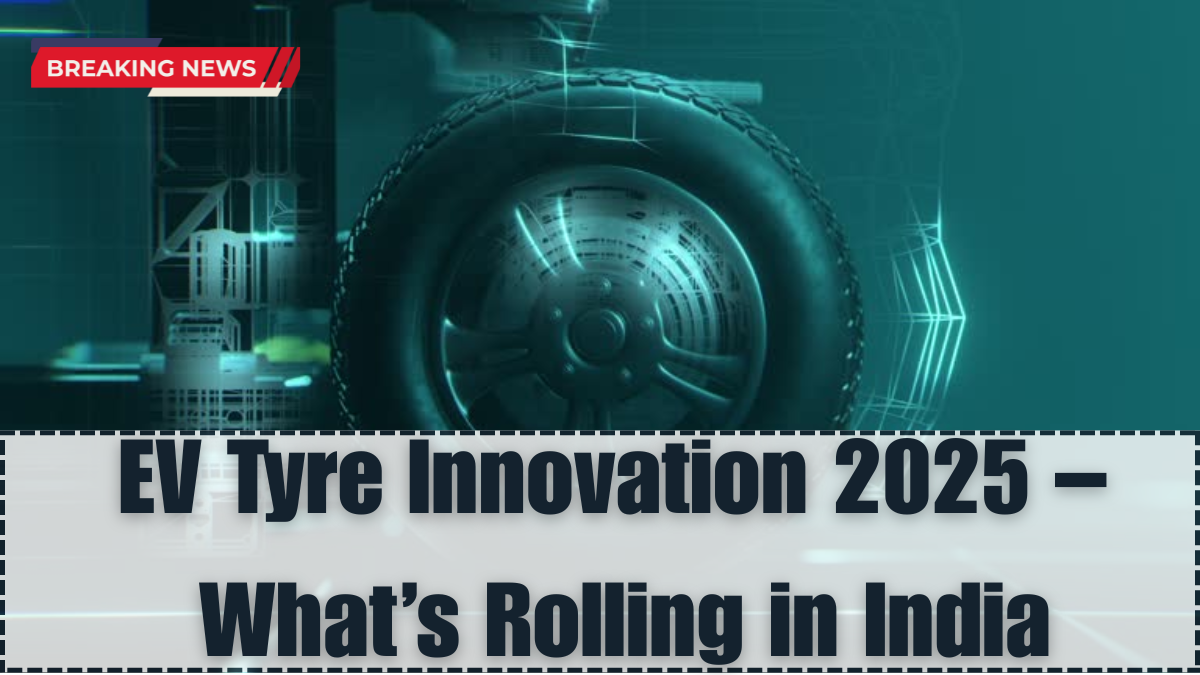With the rapid rise of electric vehicles on Indian roads, the focus has shifted from just battery and motor tech to another critical component: low rolling resistance tyres. In 2025, leading tyre manufacturers are redefining how tyres support electric mobility—making EVs quieter, more efficient, and safer for urban and highway driving.
The EV tyres segment in India is booming, with auto OEMs and tyre makers collaborating to create tech that reduces energy consumption and enhances ride quality. Whether it’s improving range or optimizing cornering performance, tyre innovation is playing a pivotal role in shaping the future of Indian EVs.

Why EVs Need Special Tyres
Electric vehicles require a very different tyre setup compared to ICE vehicles. Since EVs are heavier due to battery packs and deliver instant torque, standard tyres wear out faster and produce more noise. That’s where low rolling resistance tyres come in—they’re designed to reduce friction with the road surface, improving overall efficiency.
Unique demands for EV tyres:
-
Silent operation to match noiseless electric drivetrains
-
Improved load-bearing capacity for heavy battery weight
-
Aerodynamic sidewall designs to reduce drag
-
Longer tread life with even wear patterns
-
Better grip to handle instant torque output
These tyres are engineered using advanced silica compounds and asymmetric tread designs that strike a balance between durability and efficiency.
Major Brands Launching EV Tyres in India 2025
The EV tyres market in India is seeing a wave of new product launches from both Indian and global tyre brands. Here are some key players:
| Brand | Model | Features |
|---|---|---|
| MRF | ZLX-EV Series | Low noise, optimized for Indian city roads |
| Ceat | EnergyDrive EV | Improved range and wet braking performance |
| Apollo | Amazer EV-Tech | Built for Tata Nexon EV, compact SUV segment |
| Michelin | e.Primacy | High rolling efficiency, premium EV fitment |
| Bridgestone | Turanza EV Series | Aerodynamic sidewalls, noise cancelling grooves |
These brands are aligning with auto OEMs to ensure their tyres are available as OE (original equipment) in new EV models.
Benefits of Low Rolling Resistance Tyres
Choosing low rolling resistance tyres for your EV can offer several performance and economic benefits:
-
Increased range: Up to 7–10% longer battery life on a full charge
-
Fuel savings (for hybrids or PHEVs) by reducing drag
-
Reduced tyre noise, offering a peaceful cabin experience
-
Enhanced braking response, especially in wet conditions
-
Lower CO₂ emissions and carbon footprint
With better grip and longer durability, these tyres also help reduce long-term maintenance and replacement costs for EV owners.
Market Outlook and Government Support
The Indian government’s push for clean mobility is indirectly boosting the EV tyres segment. Under FAME III, vehicle certification also evaluates overall efficiency—where tyre performance contributes significantly.
Incentives and developments include:
-
R&D grants for tyre innovation through Automotive Research Association of India (ARAI)
-
Tyre labeling norms introduced by BIS to include EV-specific testing
-
Collaboration between EV makers and tyre OEMs for integrated design
-
Startups working on recycled and bio-based tyre materials
All these factors are making India a growing hub for low rolling resistance tyres and EV-compatible auto parts.
FAQs
Why do EVs need special tyres?
EVs have higher weight and instant torque, which require tyres with better grip, silent operation, and energy-saving properties like low rolling resistance.
Do low rolling resistance tyres improve EV range?
Yes, they reduce road friction, which improves energy efficiency and can increase EV range by 7–10% on average.
Are EV-specific tyres available in India?
Yes, leading brands like MRF, Ceat, Apollo, and Michelin now offer tyres specifically designed for Indian EVs across various price segments.
Can I use regular tyres on my electric vehicle?
While possible, it is not recommended. Regular tyres wear faster and reduce the overall efficiency and safety of your EV.
Are low rolling resistance tyres more expensive?
They may have a slightly higher upfront cost, but their long-term savings in energy and maintenance make them cost-effective for EV owners.
Click here to know more.